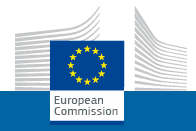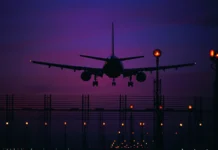Only 26% of Irish people know that 112 is the single emergency number they can call, both in and outside of Ireland, when in trouble, according to a Eurobarometer survey published today. This is despite the fact that 57% of Irish people have travelled to another EU country in the past year, well above the EU average of 39%, and more than 30% of them have travelled on more than one occasion. English can be used in all EU countries except France and Cyprus.

Many major rail, air and other transport companies have joined Vice Presidents Neelie Kroes and Siim Kallas in a campaign to raise 112 awareness rates. The emergency number will be publicised without cost to taxpayers on e-tickets, in onboard magazines, on their company websites and through their staff. The list of participating companies can be consulted on 112.eu.
Kroes and Kallas have decided to work together to ensure every European can access a 112 smartphone app, in their own language. In recent years many 112 mobile apps have been developed, but much more can be done in this field.
Neelie Kroes said: “You can save a life by knowing and dialing 112 – but 112 only helps if people know about it. So we are working with travel companies to catch attention while people are en route to their destination.”
Siim Kallas added: “I welcome the commitment of the transport sector in Europe to make every traveller aware of the 112 emergency number. 112 is an essential safety tool in transport. The list of participating companies will be open all year long and, judging from the interest shown, many more companies are likely to follow.”
Background
- 112 is the European emergency number, reachable from fixed and mobile phones, free of charge, everywhere in the EU. 112 links the caller to the relevant emergency service (local police, fire brigade or medical services) and is available 24-hours a day.
- 112 is now operational in all EU Member States alongside existing national emergency numbers (such as 999 or 110).
- 112 is also being used in countries outside the EU, such as in Croatia, Montenegro and Turkey.
- Ukraine has also committed to introduce this number in the cities that will host Euro 2012 football matches (Donetsk, Kharkiv, Kiev and Lviv) by the beginning of the sports event.
The Eurobarometer survey shows that Europeans’ awareness of the availability of 112 in their country and in other EU Member States is stagnating, although it has risen by 8% in Ireland in the past year. To address this issue, Vice-Presidents Kallas and Kroes wrote to the main transport companies on 27th January 2012 calling on them to inform their passengers about the 112 emergency number.




